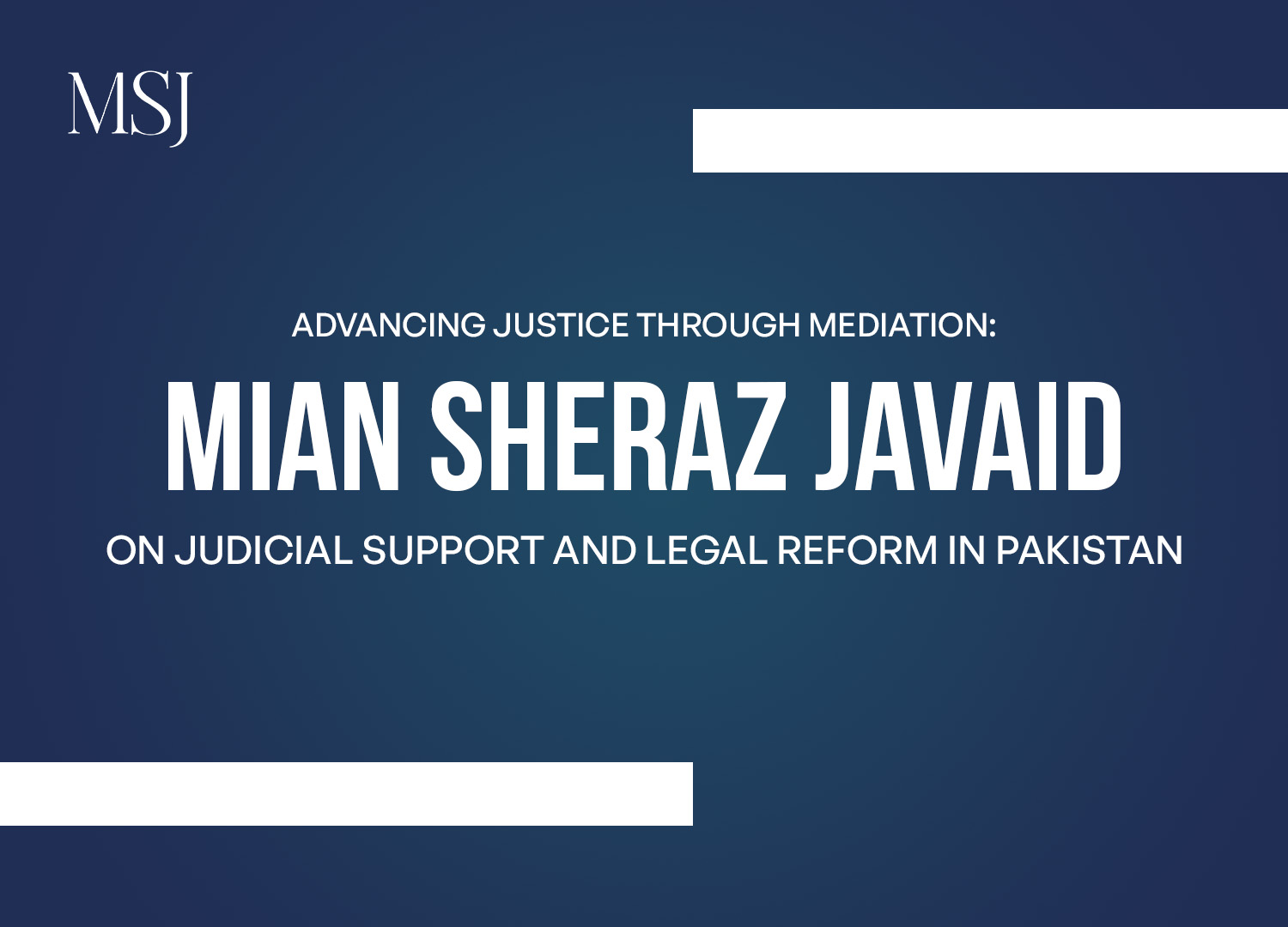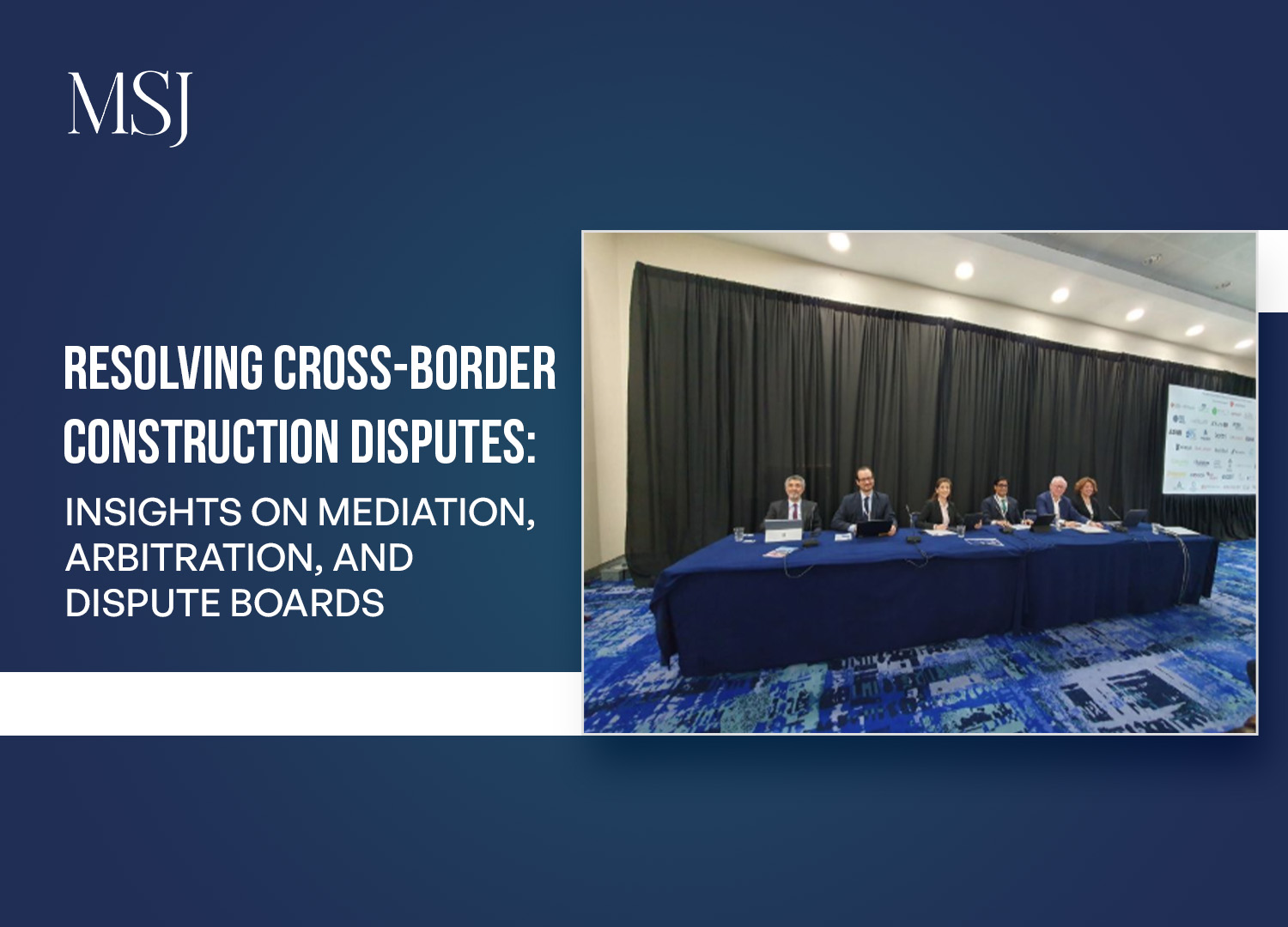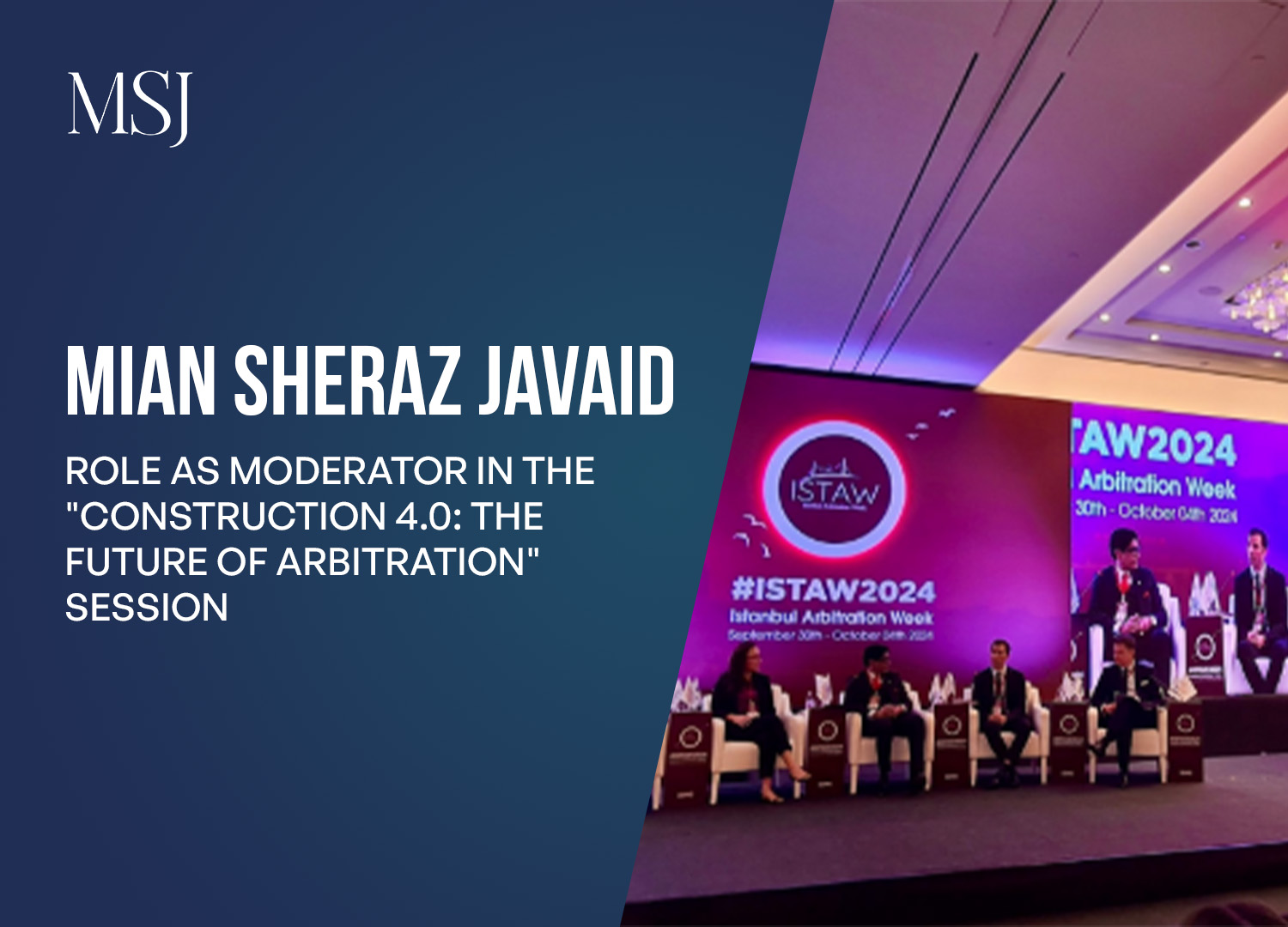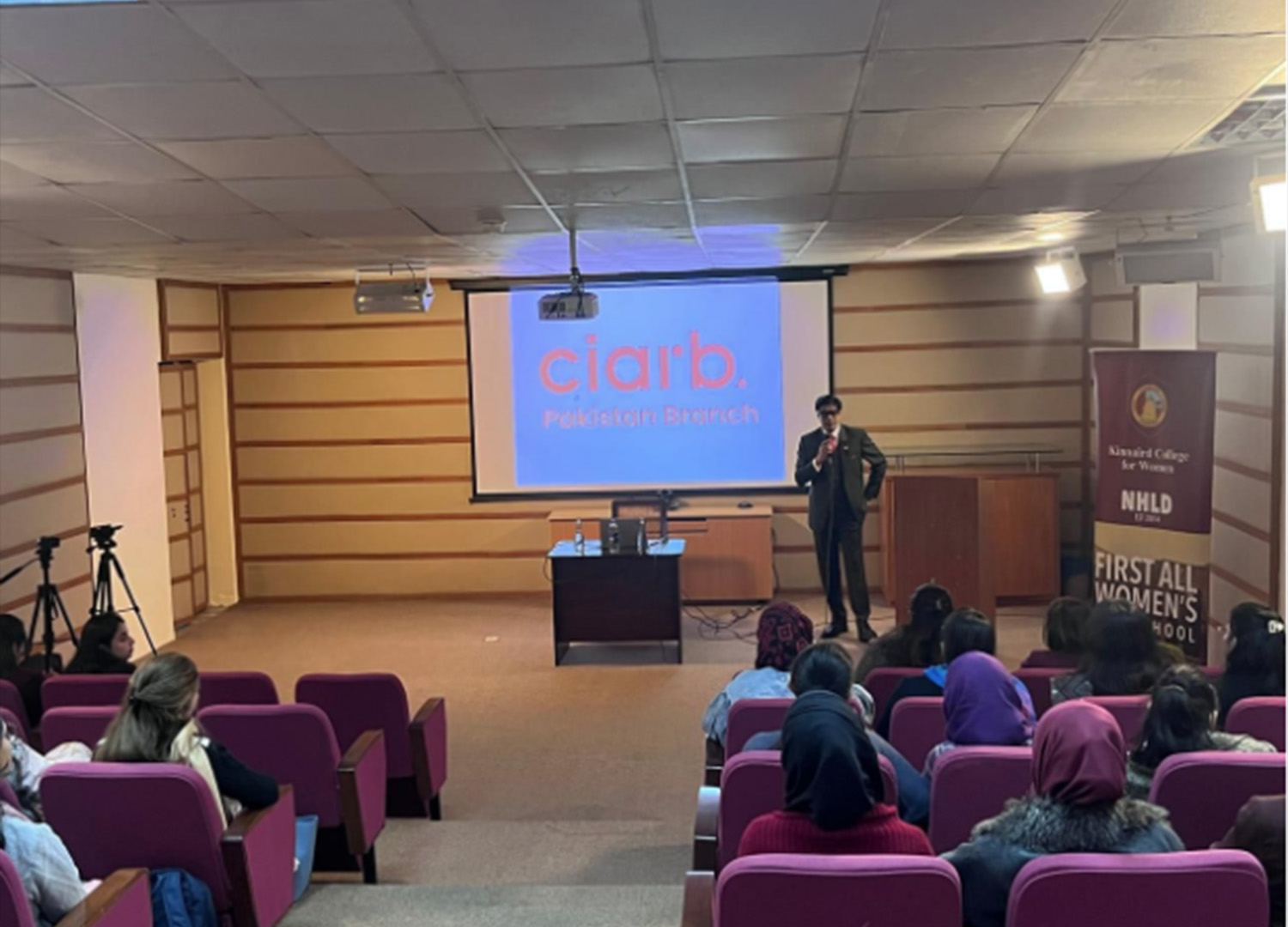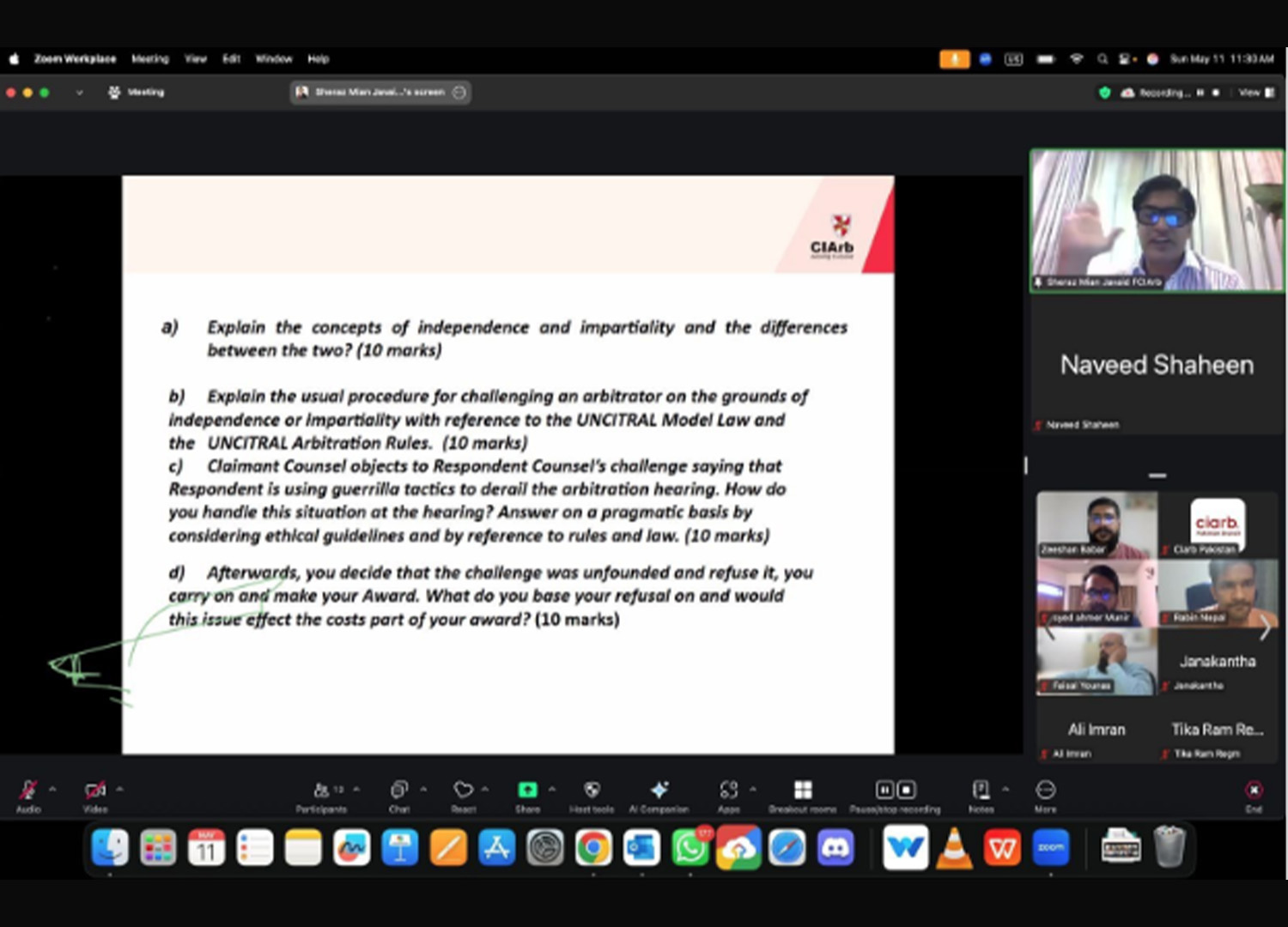The Role of the Construction Industry in Pakistan's Economic Growth
During a webinar event organised by Ciarb Pakistan and Quigg Golden Solicitors Limited, Mian Sheraz Javaid delivered a detailed presentation discussing the challenges and developments in the construction industry of Pakistan, particularly focusing on Alternative Dispute Resolution (ADR) methods. The presentation, co-paneled by Robert Burns and Nouman Qadir MCIOB, emphasized the vital role of ADR in resolving disputes, improving project outcomes, and driving economic growth in Pakistan.
Sheraz pointed out that the construction industry, an essential backbone for Pakistan's economic growth, is under severe strain owing to intricate disputes. In many cases, these disputes cause delay in projects, cost overruns, reputational damage, and stakeholder dissatisfaction, which all sum up to the failure of the industry to perform at its fullest potential. Pakistan, being an infrastructure development-led country, suffers severely in this regard.
He pointed to the great need for implementing ADR methods by all contractors, subcontractors, and other stakeholders at different project stages of construction. Such an application of ADR would ensure that the matters were settled more efficiently and even before they escalated into disputes with resultant bad decision-making and disastrous project results.
The Shift Toward ADR in Pakistan's Construction Industry
Traditionally, construction disputes in Pakistan were resolved through litigation, which was usually drawn out, expensive, and complex. However, Sheraz pointed out that in recent times, there had been a trend towards more efficient ADR mechanisms, such as arbitration and mediation. The ADR mechanism provides a quicker, cost-effective, and less adversarial mode of dispute resolution when compared to traditional litigation. In fact, this shift has increasingly been encouraged by legislative reforms in recent times.
The Pakistan Construction Disputes Report 2022 was referred to as a key source that provided an in-depth analysis of the reasons for disputes in the construction industry. The report identified ways of reducing and preventing these issues, including project delays, payment disputes, disagreements over contract terms, and mismanagement. The presentation highlighted that using ADR processes would significantly reduce such disputes and provide a more stable business environment for the construction sector.
Legislative Framework for ADR in Pakistan
Sheraz detailed the legislative measures that had shaped ADR practices in Pakistan, noting the evolution of key laws that facilitated out-of-court dispute resolution. He discussed the following acts and reforms:
- Alternative Dispute Resolution Act 2017: This Act provided a structured framework for resolving disputes outside the formal court system. It allowed for various ADR methods, such as arbitration, conciliation, and mediation, to be applied to commercial and construction disputes.
- Punjab Alternative Dispute Resolution Act 2019 (Amended in 2023): This Act improved the ADR framework by establishing more localized and efficient methods for dispute resolution, focusing on cost-effective and expedited processes. These measures aimed to reduce the strain on the formal court system, particularly in Punjab, Pakistan’s largest province.
- Khyber Pakhtunkhwa ADR Act: This Act extended ADR practices to Khyber Pakhtunkhwa, ensuring that residents and businesses in the province could also benefit from inexpensive and efficient dispute resolution options.
He also highlighted Section 89-A of the Civil Procedure Code (CPC), which empowered courts to refer disputes to ADR, thereby encouraging parties to explore these alternatives and ensuring accountability. Additionally, Order IX of the CPC promoted compliance by outlining the procedures and consequences of non-appearance in ADR processes.
Arbitration and Legal Reforms
It covered arbitration laws in Pakistan. In domestic arbitration, the presentation mainly focused on the Arbitration Act of 1940. It also covered the Enforcement of Foreign Arbitral Awards Act 2011, which laid down the legal framework for the enforcement of foreign arbitral awards in Pakistan.
Recent legislative changes were especially emphasized. In 2023, the Ciarb Pakistan Branch prepared a draft of a new Arbitration Act, which presented amendments to the Arbitration Act of 1940. Such proposed amendments included declaring the District Court as the supervisory court for arbitration proceedings in lieu of the Civil Court and enabling the direct enforcement of arbitral awards rather than their conversion into judgments. These updates were made to make arbitration more efficient and attractive for the resolution of construction-related disputes.
Global Comparison: The UK’s Housing Grants, Construction and Regeneration Act 1996
To provide context for Pakistan’s ADR framework, Sheraz compared it to international best practices, specifically referencing the UK’s Housing Grants, Construction and Regeneration Act 1996. This Act aimed to improve payment practices and provide a faster, more cost-effective method for resolving disputes in the UK’s construction industry.
He discussed how the Housing Grants Act introduced provisions like statutory adjudication, which allowed for quicker dispute resolution, often within weeks, reducing the reliance on lengthy court processes. Despite its successes, the Act faced criticism, particularly regarding its impact on subcontractors and issues with late payments.
Dispute Boards and Future Developments in Pakistan
One of the major topics the speaker addressed was the take-off of DABs in Pakistan's construction market. Sheraz mentioned that since PEC is the regulating authority, it is also upskilling the Conditions of Contract according to international standard models like FIDIC 2017. In updated models, DABs as an added feature were standardized in construction contracts.
This was supposed to enhance the quality and efficiency of Pakistan's infrastructure projects dispute resolution. He cited a critical case, China Water & Electric Corporation (CWE) vs. National Highway Authority in which ADR mechanisms have been applied successfully, while pointing out that such approaches are effective in resolving construction disputes.
Presenting its commitment towards adopting FIDIC 2017 standards and integration of DABs within the bidding document is a fundamental step towards securing the construction industry in Pakistan through a stable and predictable business environment. This will lead to increasing foreign investment into infrastructure projects.
Conclusion
Sheraz concluded his presentation by emphasizing that the growing adoption of ADR in Pakistan’s construction industry, supported by key legislative reforms, has the potential to significantly reduce disputes and improve project outcomes. By modernizing arbitration laws and integrating ADR methods like DABs, Pakistan is working towards creating a more efficient, accessible, and competitive construction sector. These efforts will not only improve the local business environment but also help position Pakistan as an attractive destination for foreign investment in its infrastructure development.


